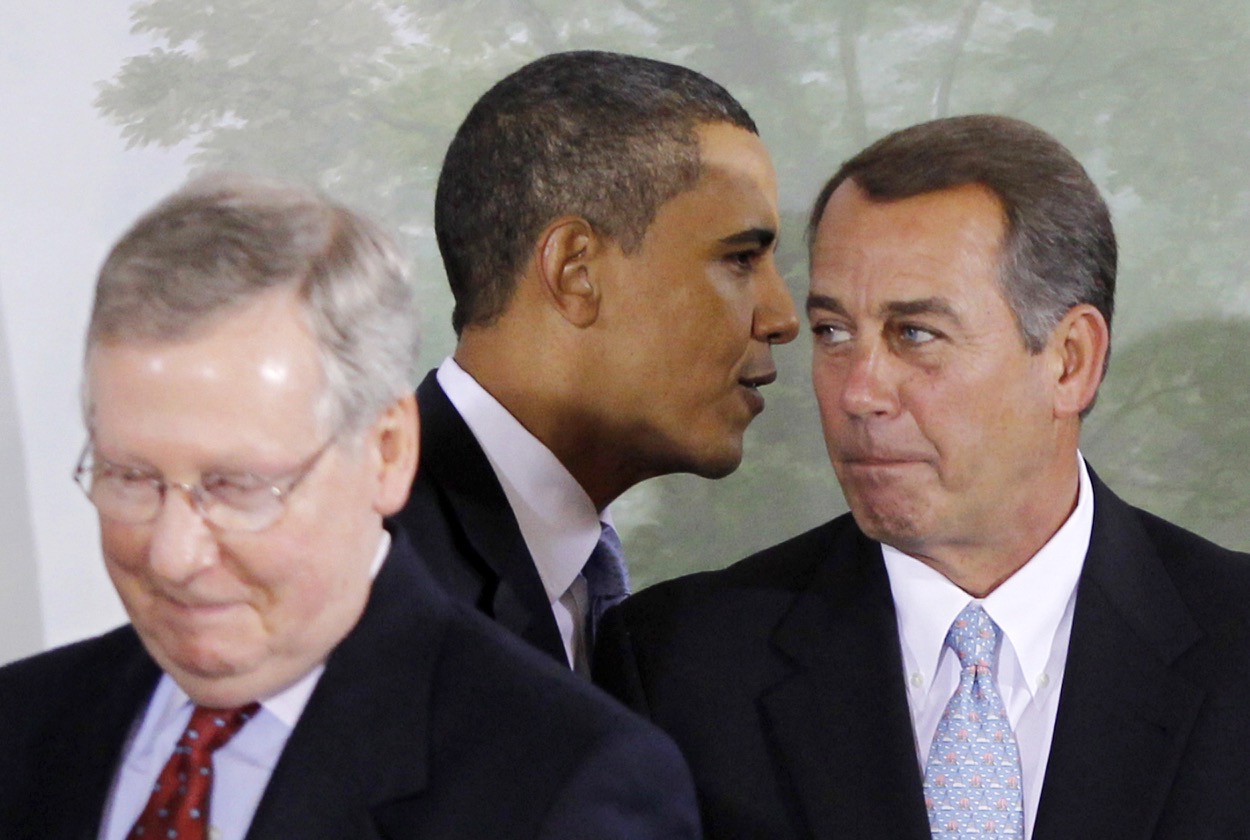What went wrong?
It’s starting to look like another sorry tale of partisan gridlock–the sort of thing that everybody in Washington was promising to end.
The day after last November’s Congressional elections, as the Democrats’ one-party rule collapsed, both Democrats and Republicans promised to work together. “I told John Boehner and Mitch McConnell that I look forward to working with them,” said President Obama, referring to the Republican leaders in the House and the Senate. They replied in kind: “We’re willing to work with him,” said Boehner.
At times, it seemed like they were going to break out the peace pipes and sing “Kumbaya.”
On some issues, such as national health care, the White House and Republicans knew they didn’t share much in common. Trade policy, however, presented itself as an excellent candidate for potential cooperation if both sides made an effort.
The Administration renegotiated a pending free-trade agreement with South Korea, broadening its political appeal. Even the United Auto Workers endorsed it, joining farm groups and just about everybody who has ever belonged to a Chamber of Commerce. On January 25, Obama presented the deal as a political slam dunk in his State of the Union address. “This agreement has unprecedented support from business and labor, Democrats and Republicans–and I ask this Congress to pass it as soon as possible,” he said.
Now, more than a month later, Congress has yet to consider an agreement with Korea, even though it would boost American exports and create jobs in the United States.
“In recent weeks,” reported the New York Times on Monday, “[Obama’s] trade agenda has nearly ground to a halt amid partisan feuding.”
So much for “unprecedented support.”
Washington probably leads the nation in the production of blame–and right now there’s plenty of it to go around. Republicans accuse Obama of not pushing hard enough for the agreement and point out that Democratic Senator Max Baucus of Montana, who chairs a key committee, remains an outspoken skeptic. Democrats have their own gripes. They complain that Republicans are refusing to expand trade adjustment assistance, a federal program for workers who suffer blows from import competition. They also charge the GOP with creating a new stumbling block for the South Korean measure by insisting that it be combined with free-trade deals involving Colombia and Panama. Although these accords aren’t nearly as large as the one with South Korea, they face greater resistance.
The sadly predictable result: paralysis.
Except that it’s even worse than paralysis, which suggests mere inactivity. On trade policy, we’re not just failing to move forward–we’re actually losing ground.
On February 12, the Andean Trade Preferences Act expired. For 20 years, it had granted Bolivia, Colombia, Ecuador, and Peru duty-free access to sectors of the U.S. market in exchange for cooperation on drug interdiction.
Now it’s gone.
Separately, the Generalized System of Preferences (GSP), which dates to 1976 and intends to help developing countries, also lapsed. With GSP, the culprit is Republican Senator Jeff Sessions of Alabama, who claims that a certain sleeping-bag manufacturer in his state can’t compete with a business in Bangladesh. So he’s holding up the whole kit and caboodle.
As it happens, Sessions isn’t offering some kind of patriotic stand for a made-in-America product. The owner of the company he’s defending also controls a sleeping-bag plant in China, according to the New York Times. This is provincial politics at its most small-minded.
There’s more at stake here than how much Boy Scouts will spend on sleeping bags this spring. The larger issue is America’s role as a global economic leader. Instead of expanding opportunities for U.S. workers and enterprise through the promotion of highly touted free-trade agreements, we’re closing our doors to the rest of the world.
Trade policy should be about creating economic opportunities for Americans–not giving the politicians in Washington an excuse to criticize each other.
We need the trade agreement with South Korea and we need it now.
Bill Horan grows corn, soybeans and other grains with his brother on a family farm based in North Central Iowa. Bill volunteers as a board member for Truth About Trade and Technology. www.truthabouttrade.org

